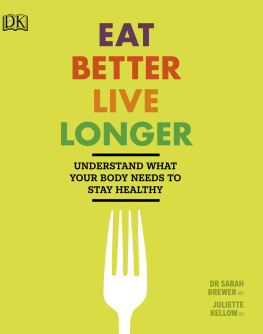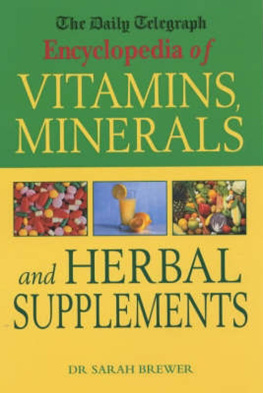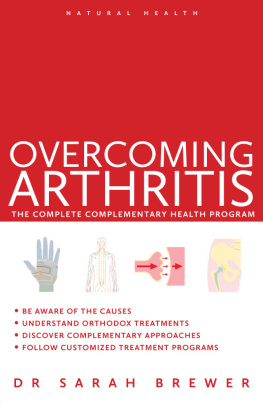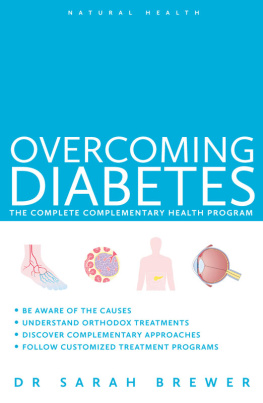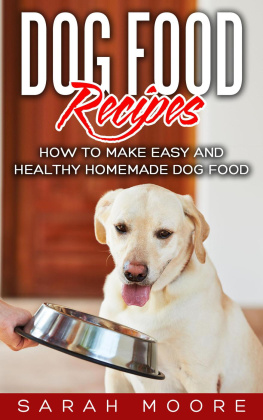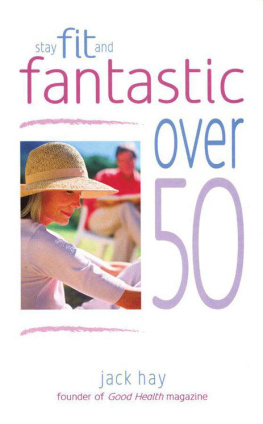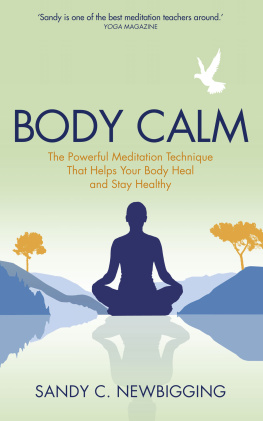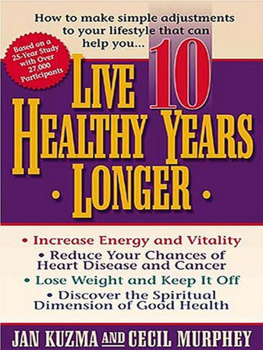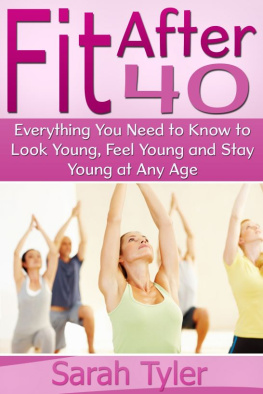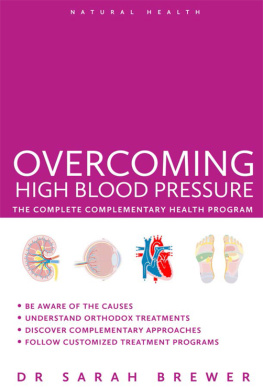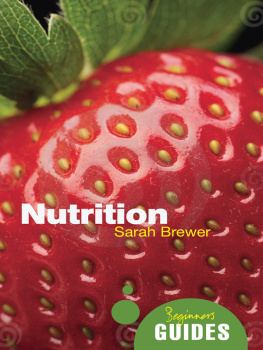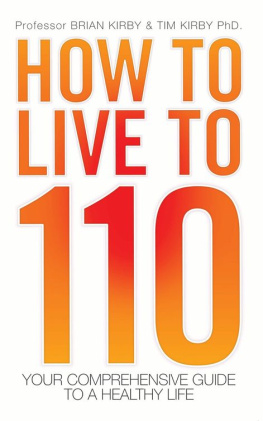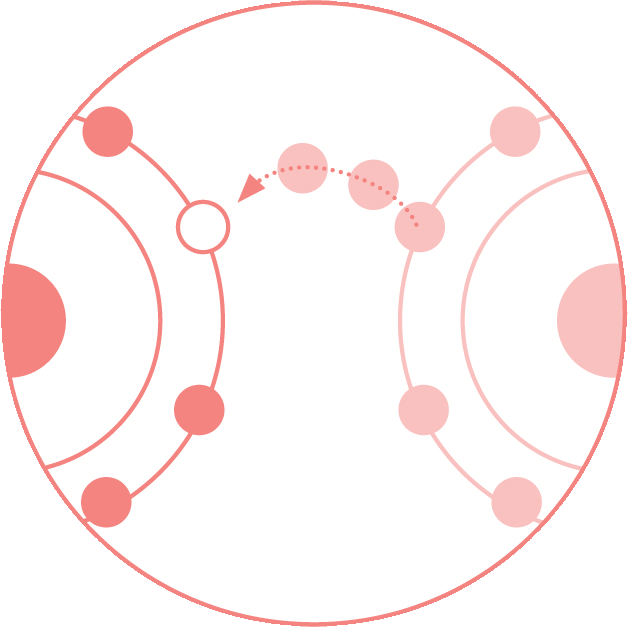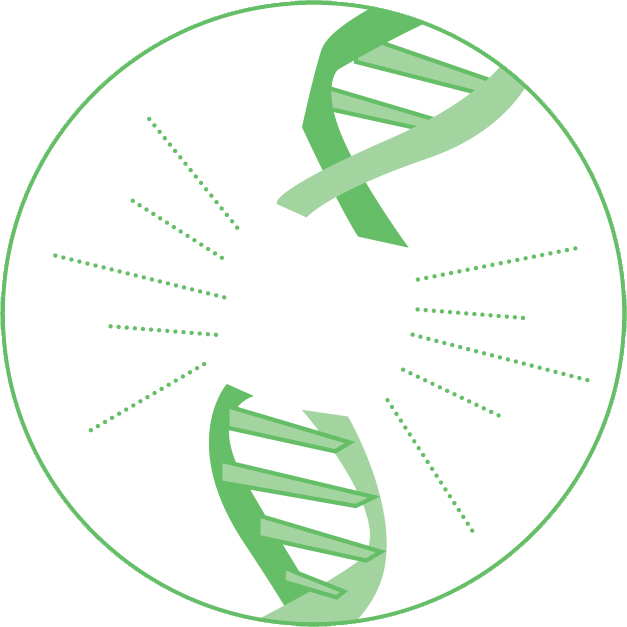Foreword
Eat Better, Live Longer is your fad-free food guide for adding extra years to your life. It confirms what medics and nutritionists have known for many years: that the secret elixir to ageing well doesnt come in a pill, potion, or lotion; instead, it can be found in your very own kitchen!
Together with not smoking and exercising regularly, eating a healthy, well-balanced diet is one of the most important things you can do to extend the number of healthy years you live. But just what should an age-defying diet consist of? This book starts by identifying 10 common eating habits or principles that are seen among the worlds longest-lived communities. These principles are the foundation for protecting against many diseases common in the Western world, including obesity, heart disease, cancer, type 2 diabetes, dementia, and arthritis all conditions that hinder quality of life and often cut lives short.
The 28-day longevity plan moves you closer towards achieving these principles on a week-by-week basis. Interspersed throughout the plan youll find delicious, nutrient-packed recipes, together with in-depth information on the anti-ageing benefits of 20 longevity wonderfoods or supergroups of foods. These confirm its not weird and wonderful ingredients you need to support a longer and healthier life, but normal everyday foods you can buy in your local supermarket. Youll also find detailed information on how the body ages along with advice on specific foods to help address the ageing process.
The advice in this book is designed to reinforce what you may already know, and to build on this knowledge with the most up-to-date research based on science fact rather than science fiction. With new ideas and practical information, it couldnt be tastier or simpler to eat your way to a happier, healthier, and longer life.
Juliette Kellow, author and registered dietitian
Dr Sarah Brewer, medical consultant

What is ageing?
Explore ageing and the aspects of life that can influence how fast you age. And, see what lessons you can learn from the worlds longest-lived communities.
Theories of ageing
Experts are beginning to reach a consensus on why we age and were closer than ever to understanding the mechanisms involved. This knowledge is crucial for understanding what causes many of the health problems commonly seen in later life.
Fortunately, the idea that ageing is programmed into us at a genetic level such that we cant do anything about it is outdated. Instead, many theories seem to support the idea that cell damage is central to the ageing process.
Cellular wear and tear
The longer we live, the more damage our cells suffer simply because they have been working for a longer time. As a result of this damage, our organs and tissues begin to function less effectively, until eventually they stop working. Cell damage, loss, or change seems to be an inevitable part of ageing, but our lifestyle probably has a role to play in both the process and the speed at which it occurs.
Experts agree that lifestyles play a significant part in how quickly or how slowly we age.
By leading a healthy lifestyle, our cells should only need to perform their normal functions and not go beyond the call of duty, thereby wearing themselves out. If you constantly race and neglect a car, it will deteriorate far quicker than if you drive sensibly and maintain it; the body is the same.
A growing consensus
Scientists have reduced hundreds of theories of ageing to just a few significant ones that all support each other. We dont yet know definitively what causes cell damage, but we are closer to understanding the underlying mechanisms. There are now four dominant theories aiming to explain age-related damage to cells and to DNA.
AGEs FORMATION
AGEs (advanced glycation end-products) form in the body when sugars combine with proteins. AGEs stick to other proteins, forming cross links that stiffen the proteins so they no longer function normally and damage surrounding cells. Studies show this process may be responsible for everything from wrinkles to Alzheimers. AGEs are also found in sugary foods, red and processed meat, and chargrilled foods.
FREE RADICALS
Free radicals are unstable atoms produced naturally from body functions such as breathing and digestion. Most are neutralized by antioxidants, but any that escape can cause oxidative damage to DNA, proteins, and mitochondria (the batteries of our cells). Free radicals also come from external factors such as pollution, tobacco, drugs, alcohol, stress, and a poor diet thats high in unhealthy fats and sugars.
DNA DAMAGE
Mistakes in replication and factors, such as toxins and free radicals, cause damage to DNA, and this may also contribute to the ageing process. DNA damage happens in every cell of our body thousands of times a day, and we have evolved an armoury of repair mechanisms to cope. Not all damage is corrected, however, and this results in mutations that amass with age, until cells malfunction and die.
TELOMERE SHORTENING
Telomeres are caps on the ends of chromosomes (coiled molecules of DNA), which stop DNA unravelling. Telomeres shorten each time a cell divides, until they get so short the cells cant replicate and may die off or no longer be capable of repair factors that contribute to ageing. More research is needed, but its becoming clear that bad habits, such as poor diet, seem to speed up this telomere shortening.
What affects how we age?
Physical ageing is inevitable, but how we live our lives has a big impact on just how quickly or slowly this happens. Making a few simple lifestyle changes could be all it takes to keep your body and brain younger.

